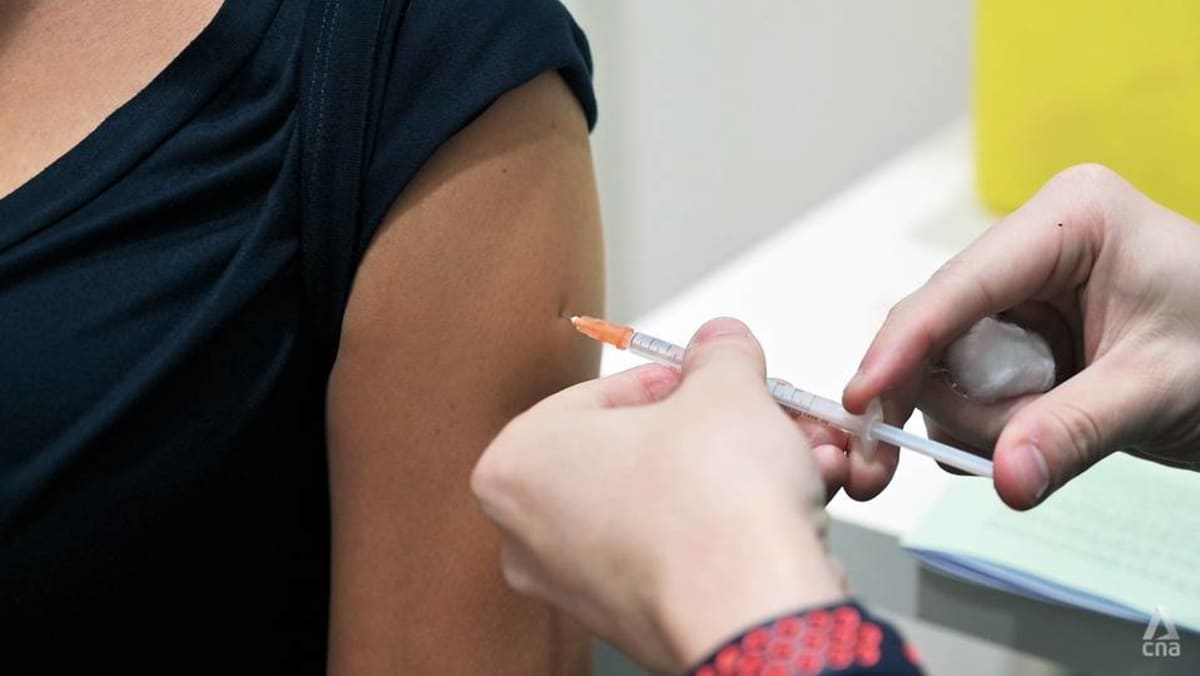
SINGAPORE: The overall risk of developing heart inflammation, or myopericarditis, following COVID-19 vaccination is "very low", affecting just 18 people per million vaccine doses, according to a team of researchers from Singapore.
Their study, published in the medical journal The Lancet Respiratory Medicine, found no statistically significant difference between the incidence of myopericarditis following COVID-19 vaccination and other vaccinations.
Other vaccinations affected 56 cases per million doses.
Myopericarditis is a condition that causes inflammation of the heart muscle and, in some cases, severe permanent heart damage. It is most often caused by viruses but can also occur after vaccination in rare instances.
The study was conducted by researchers from the National University Heart Centre, Singapore (NUHCS), the National University Hospital (NUH) and the Yong Loo Lin School of Medicine, National University of Singapore (NUS Medicine).
According to a joint press release on Tuesday (Apr 12), the researchers looked at more than 400 million vaccination doses, to compare the risk of myopericarditis following vaccination against COVID-19 and other diseases such as influenza and smallpox.
“Our research suggests that the overall risk of myopericarditis appears to be no different for this newly approved group of vaccines against COVID- 19, compared to vaccines against other diseases," said Dr Kollengode Ramanathan, senior consultant in the department of cardiac, thoracic and vascular surgery at NUHCS and one of the authors of the study.
There have been reports of myopericarditis following mRNA-based COVID-19 vaccination, especially in adolescents and young adults.
The researchers found that among people who received COVID-19 vaccines, the incidence of myopericarditis was significantly higher in males (vs females), in people younger than 30 years (vs 30 years or older), those receiving an mRNA vaccine (vs non-MRNA vaccine), and after a second dose of vaccine (vs a first or third dose).
The study suggested that policies like preferentially offering a non-mRNA vaccine to males, particularly those younger than 18 years could be considered to manage the risk of myopericarditis, while considering the overall benefits and harms of the vaccines.
“The occurrence of myopericarditis following non-COVID-19 vaccination could suggest that myopericarditis is a side effect of the inflammatory processes induced by any vaccination and is not unique to the SARS-CoV-2 spike proteins in COVID-19 vaccines or infection,” said Dr Jyoti Somani, an infectious diseases specialist at NUH and a co-author of the study.
This highlights that the risk of the adverse events should be offset by the benefits of vaccination, such as "a lower risk of infection, hospitalisation, severe disease, and death from COVID-19", added Dr Somani.
https://news.google.com/__i/rss/rd/articles/CBMibGh0dHBzOi8vd3d3LmNoYW5uZWxuZXdzYXNpYS5jb20vc2luZ2Fwb3JlL215b3BlcmljYXJkaXRpcy1yaXNrLWNvdmlkLTE5LXZhY2NpbmF0aW9uLWxvdy1sYW5jZXQtc3R1ZHktMjYyMTc2MdIBAA?oc=5
2022-04-12 11:34:17Z
1380412579
Tidak ada komentar:
Posting Komentar